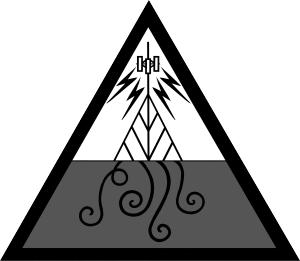FP362 – Chances
Welcome to Flash Pulp, episode three hundred and sixty-two.
Tonight we present Chances, Part 1 of 1
[audio:http://traffic.libsyn.com/skinner/FlashPulp362.mp3]Download MP3
This week’s episodes are brought to you by the Skinner Co. store!
Flash Pulp is an experiment in broadcasting fresh pulp stories in the modern age – three to ten minutes of fiction brought to you Monday, Wednesday and Friday evenings.
Tonight we tell the future stories of Cornelius, and the tragic tale of his mother, Marilee.
Chances
Written by J.R.D. Skinner
Art and Narration by Opopanax
and Audio produced by Jessica May
Cornelius the First had always been a sickly boy.
His presence in any classroom was ever notable due to his unshakable dry cough, and his sallow skin seemed to stubbornly refuse any aid from sunlight or nutrition.
Every day his brown bagged lunch contained a tuna or salmon sandwich, a well considered array of vegetables, and enough money for milk taped to a lovingly crafted note. Every day he would crumple the note, toss it in the garbage, and buy himself a coke.
Secretly, Mr. Cabada, Cornelius’ homeroom teacher, blamed the soda for the boy’s condition. The rest of the staff simply shrugged, assuming his lot in life lay in accounting.
By his eleventh birthday, however, any such existence appeared unlikely. He was missing more class than he was attending, and his relationships with his fellow students extended no further than the occasional “Get Well Soon” art project.
It was luck, then, that he was in attendance, seated in his often necessary wheelchair, the morning the ceiling erupted.
Leaky gas pipes and budget cuts would eventually be identified as the culprit, but thoughts of blame were far from Cornelius as adrenaline and willpower pushed him from his awkward, but fortunate, position at the edge of Ms. Shen’s music class.
Ms. Shen herself, who’d until recently been standing at the blackboard, had not been so favoured. From his vantage point Cornelius caught the last twitching, then decline, of her right leg.
Still, the toppling of metal, stone, and tile left the majority of what remained of the room coated in dust, sparing the boy the extent of the disaster. Pulling the nearest coughing form from beneath a hundred pound sliver of roof beam, he placed the girl – Adrianne Hazel, who had spent fourth grade calling him Pornelius – in his chair, then he reached for the next. Stacking his classmates three high, he managed to save a dozen injured children by the time the first responders arrived to deal with the increasingly dense smoke and flame.
As latex gloved hands and whirring news drones began to flood the scene, Cornelius collapsed into his seat.
His mother arrived moments after a paramedic, intending congratulations, had noticed the boy’s passing.
Taking in his clearly ill body, and tasked with inspecting a dozen more petite corpses, the coroner quickly released Cornelius to his hero’s funeral.
The grainy images of ruin captured by the flock of drones, looped endlessly on every cable news channel, had made him famous, and the swarming clouds of tiny quad rotors that took in his sun drenched burial doubled his reputation.
Marilee, his only family, was well familiar with weeping and pitying attention, as many had been touched at the sight of her son’s plight even before the rescue.
Her appearance on Oprah 3.0 was enough to sway popular opinion, pushing through a major education and infrastructure bill that would supposedly prevent any such future incidents. It was also then that she drew the attention of New Youth Limited.
NYL had recently obtained the sole corporate American human cloning license, and, though the product was still quite expensive, a marketing boy wonder quickly pitched the idea of a pro bono project for a worthy cause.
 The media again went wild the day Marilee accepted.
The media again went wild the day Marilee accepted.
Calls and emails from lab coat wearing technicians suggested that they could subtly alter their collected DNA, leaving the outcome looking more like a close twin than an exact duplicate. She insisted otherwise.
She would have Cornelius, but a different Cornelius – Cornelius the Second.
Just as the boy always had, they did what she demanded.
The second child lasted four years longer than the reality show that revolved around his life. By the age of five, however, he was no longer novel, and his bookish habits were not cute enough to maintain his viewership. Even as he sickened, the program was cancelled.
By nine, two years ahead of his predecessor’s decline, the familiar signs were already well in place.
Pity, and the responding officer’s familiarity with their once beloved television show, again swayed the investigation – or lack thereof.
Though entertainment reporters announced the passing with stoic faces, the second funeral was considerably less well-attended than the first.
Marilee purchased Cornelius the Third herself, using the last of her saved syndication money.
The lab techs could only look at each other and shrug when she entered. A paying client was a paying client
History seemed destined to repeat itself until, at the age of seven, the new Cornelius, living in relative obscurity in a California duplex, displayed intelligence beyond his age and bravery to rival his original.
The sickness had begun to take hold again, but the boy, always a voracious reader, now had access to chronicles his identical brothers simply hadn’t had.
At eight he could watch his previous self grow at the pace of one episode a week, and he could read the online media reports about his habits at eleven that had been publicized after his original death. His mother had many of these printed out and handy, just in case a visitor should ask about her problems.
It was summer break, and most of his mornings were spent seeking the backwater cable reruns that kept his mother from having to find a day job. Cross-legged on the carpet, with the screen nearly pressed against his nose, he analyzed his precursors for any clue to change his seemingly inevitable course.
Things unraveled the Tuesday his televised mother delivered a salmon sandwich to his televised duplicate just as he re-read a finger-worn fluff piece about Cornelius the First. It claimed his favourite TV show was something long off the air, that his favourite pastime was people watching – which remained true – and that his favourite sandwich was salmon or tuna.
It was not that he hated salmon and tuna, but neither was his favourite. He ate them because it seemed important to his mother.
TV Mom’s smile was still lingering in the air when lunch arrived on the usual blue-trimmed plate.
He looked at the quad-sliced white bread, then to Marilee’s face.
With a squint to his eye he said, “I’m ok, thanks.”
“Not feeling well?” she asked.
“I’m ok. I just don’t want it,” he answered.
Marilee would realize later that it might have been nothing more than a child’s random and passing concern if she’d let it go, but, in the moment, her eyelids fell low and her lips pulled tightly into a solid shelf.
“Eat it,” she said.
He thought he heard both surprise and anger in her tone – and so began a siege that lasted nearly two days.
She shouted, he shrugged. He could not turn up the source of her poison, but her rage was all the proof he needed. It helped though, when the hunger truly began setting in, that he seemed more spry, and that the headache – the constant and unending throb that counted the seconds of his day – had stopped.
Allowed to think again, he wondered how it was he had never considered simply saying no – but then, he supposed, neither had his doppelganger siblings.
Finally, having skipped another supper, Marilee lost what remained of her control. The blow across his cheek was awkward, but delivered with the full force of an adult’s swing.
Immediately he knew the bruise was something Cornelius the First and Second had never had, and he wore his difference with pride.
With his fingers still on the ever-growing welt, he sprinted from the house and towards the convenience store phone from which he would call Child Services.
Flash Pulp is presented by http://skinner.fm, and is released under the Creative Commons Attribution-Noncommercial 3.0 Unported License.
Intro and outro work provided by Jay Langejans of The New Fiction Writers podcast.
Freesound.org credits:
Text and audio commentaries can be sent to comments@flashpulp.com – but be aware that it may appear in the FlashCast.
– and thanks to you, for reading. If you enjoyed the story, tell your friends.
 “I am not living,” said the pale android in the velvet Victorian waistcoat, “I am an artificial avatar known as RoBowie. I had myself built to stand as guardian to my estate – I didn’t relish the idea of being sold into a Coca Cola commercial. I’ll take my immortality where I can get it.”
“I am not living,” said the pale android in the velvet Victorian waistcoat, “I am an artificial avatar known as RoBowie. I had myself built to stand as guardian to my estate – I didn’t relish the idea of being sold into a Coca Cola commercial. I’ll take my immortality where I can get it.”

 He wasn’t a terrorist – he’d done nothing wrong, beyond being born in a place full of oil, and this wasn’t the Middle East, were Logan Clark’s thoughts as he snapped down the last of the zip ties.
He wasn’t a terrorist – he’d done nothing wrong, beyond being born in a place full of oil, and this wasn’t the Middle East, were Logan Clark’s thoughts as he snapped down the last of the zip ties.